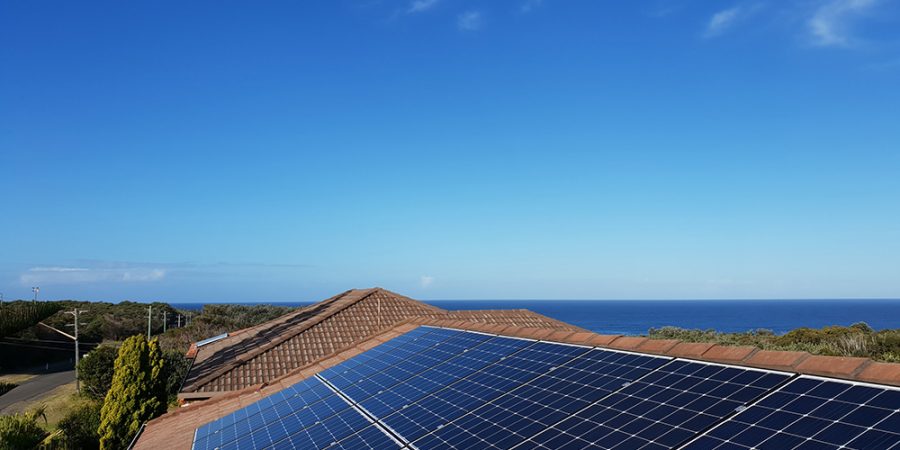
If you’re investing in solar panels, you will need the advice of a solar panel installation expert. The expert will educate you on all the different components that make up a solar system – including solar inverters.
What is a solar inverter, and why do you need one?
Keep reading as we discuss what a solar inverter is, its role in your solar system, and the different types of solar inverters.
What Is A Solar Inverter?
A solar inverter is a power inverter designed to convert energy harnessed by photovoltaic panels (solar panels) into energy that you can use to light, heat, and power devices throughout the home.
When your solar panels harness energy from the sun’s rays, the type of energy they generate is a direct current (DC). The kind of energy you need to run appliances around the home is an alternating current (AC). Solar panel inverters convert DC energy to AC energy, allowing you to use power from your solar panels around the house.
When you have solar panels installed in your home, the expert will usually install your solar inverter in an accessible location in your loft or attic. If you wish to store any excess energy from your solar panels, your installer can also fit your system with a solar battery. The solar battery connects to the solar inverter.
There are a few different types of solar inverters:
- String inverters – the solar panels are connected in a series within a string inverter system. All your panels must be positioned at the same tilt in a string inverter system.
- Microinverters – the solar panels are connected parallel to one another in a microinverter. However, if one of your panels stops working, this may affect the performance of the other panels in a microinverter system.
Why Do I Need A Solar Inverter?
Without a solar inverter, your solar panels are useless. You could harvest direct current (DC) energy, but you would be unable to use it. You need alternating current (AC) energy for your lighting, heating, and appliances. Without a solar inverter, you can’t use your solar panels for anything.
How To Choose A Solar Inverter?
When choosing a solar inverter, there are several factors you must consider:
- The size of your system – you need a solar inverter that can match the energy output of your solar panels. The amount of DC energy your solar panels produce is called your DC rating. Your solar inverter’s DC rating should match the DC rating of your solar panels.
- Affordability – you should look for a solar inverter that is priced competitively, but you should avoid solar inverters that are priced too cheaply. Browse for solar inverters to gauge an idea of the standard price. This will allow you to select a competitively priced inverter. If you opt for a cheaper one, you could invest in a lower-quality product with fewer accreditations and cheap manufacturing materials.
- The location – you will need to review where you wish to place your solar inverter. Most solar installers will fit the solar inverter in your loft. However, the heat in your attic could cause your solar inverter to have a decreased lifespan. Plus, you cannot check your inverter regularly to see if it works correctly.
- Inverter types include different kinds of inverters, such as string inverters and microinverters. To know which type is best for your system, contact SolarPath and get some advice.
Summary
A solar inverter is a crucial component in a solar power system – it is the part of a solar panel system that converts energy from photovoltaic panels into usable energy for the home. Speak to your local solar system installer, and ask which solar inverter best suits your system.
Read Also:
13 Top Benefits Of Installing Solar Panels For Your Home
Go Solar and Boost Your Home’s Property Value










 Solarpath | Solar Path NSW GPS Directions
Solarpath | Solar Path NSW GPS Directions